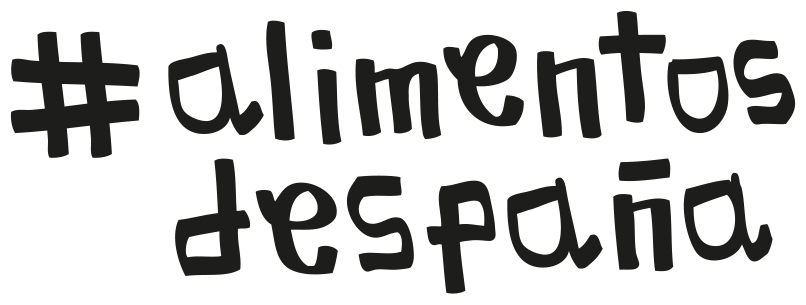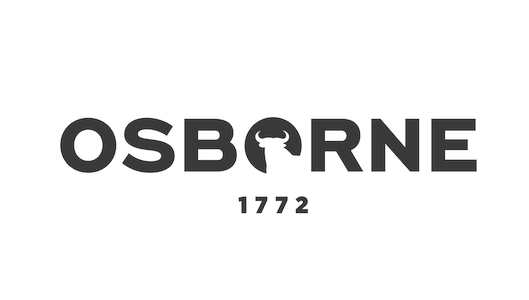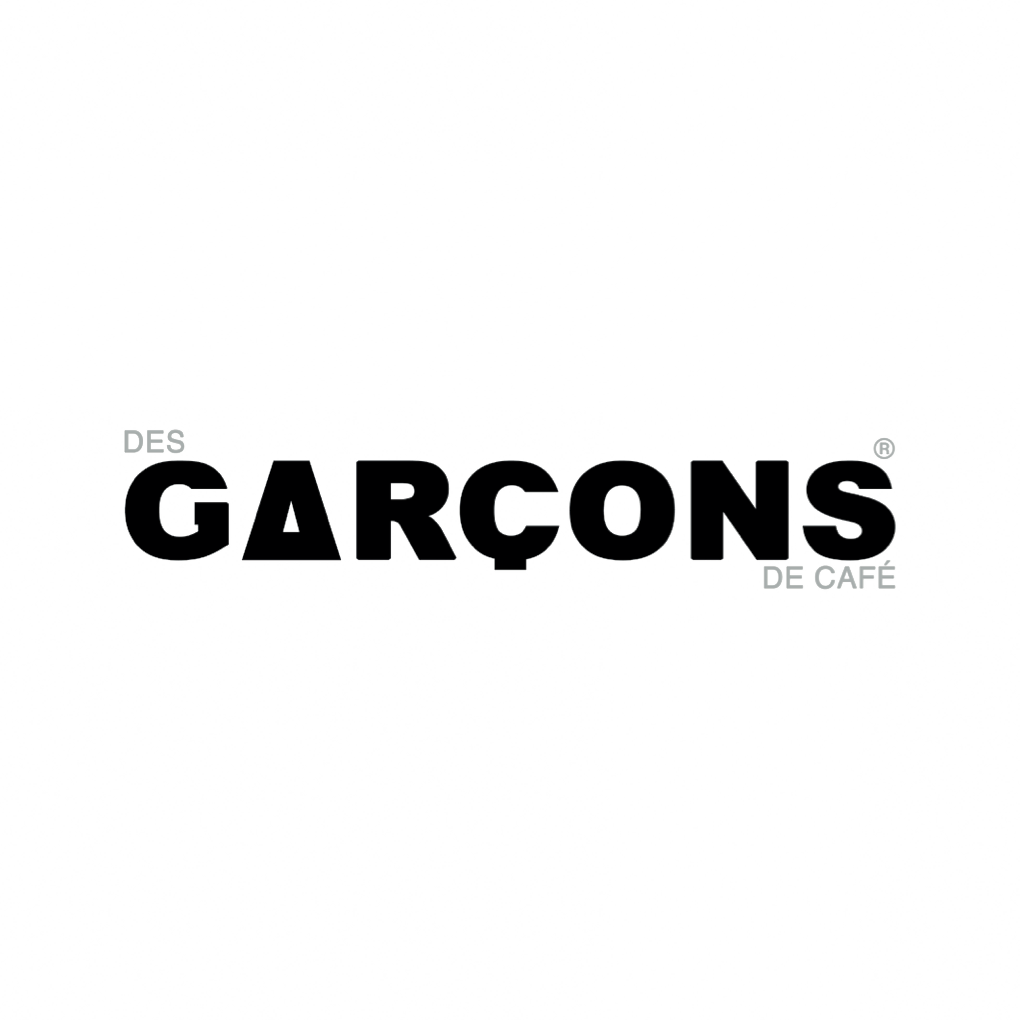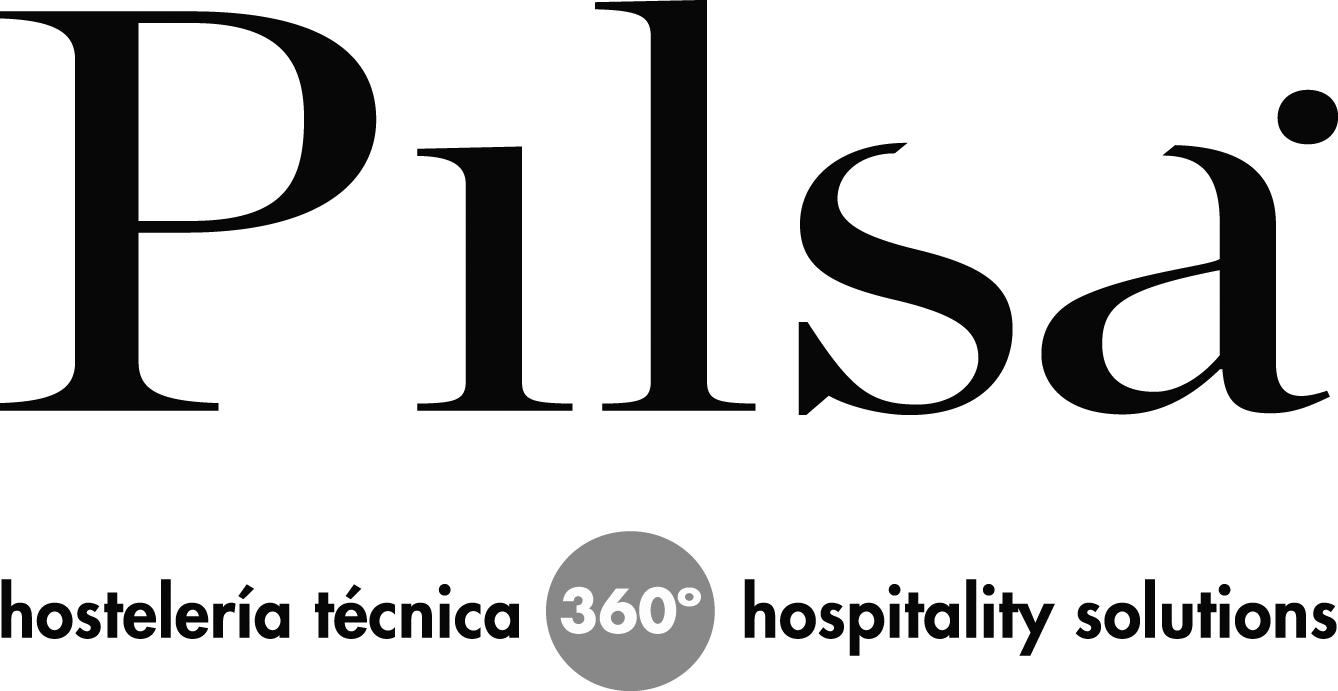News
Innovation and education, key components of the new aquaculture
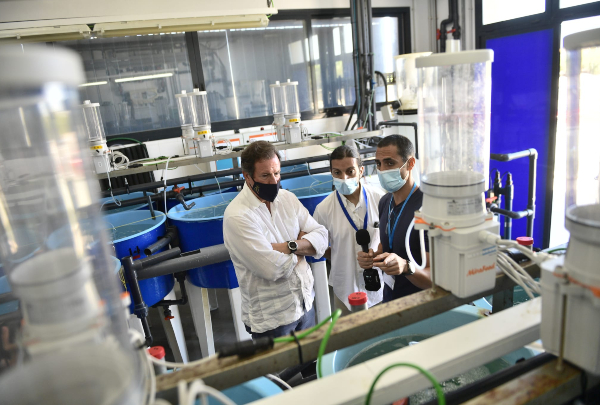
Meeting of the Seas visited the Aquaculture Technology Centre and also the Marítimo Zaporito Integrated Vocational Training Centre.
María del Mar Agraso, Chief Technical Officer at the Andalusian Aquaculture Technology Centre (CTAQUA), played host to the Meeting of the Seas contingent at this facility now expanding the aquatic sector, to discuss innovation, research and development. With “innovation as a growth driver”, said the CTAQUA biologist, the challenge now facing the sector is to bring about “a sustainable form of aquaculture which also meets human beings’ new food requirements”.
In this regard, the CTAQUA is a link between science and business which, in Agraso’s own words, “boosts the competitive innovation of the maritime corporations” with which technical staff at this aquaculture centre work closely alongside, developing a range of projects to meet the needs of the aquatic sector, commercial and corporate needs. This non-profitmaking organisation has various lines of work, which were revealed to the visitors during a guided tour of the facility.
Teresa Picó, Project Technical Officer at the CTAQUA, showed us the processing laboratory where fishing and aquaculture produce is transformed into high added-value commercial products, with a focus on more sustainable and healthy values. In relation to the cultivation of macroalgae, the centre’s project leader, Erik Malta, showed us the research he is conducting with his team to boost production, which is essential to bring a greater percentage of algae-based fish fodder into aquaculture, entailing a smaller environmental impact in comparison to traditional fodder made from fish fat. Our visit to the CTAQUA was rounded off with explanations by José Cabello, head of the department of experimental development, who is now experimenting on the introduction of new species into the aquatic sector to help boost commercial diversity.
Generational change in aquaculture
The visits ended with a tour of the Marítimo Zaporito Integrated Vocational Training Centre in San Fernando (Cádiz). This maritime and fishing centre teaches two aquaculture cycles, and is carrying out an interesting golden mullet (Lisa aurata) breeding project, which was explained to us by aquaculture lecturer José Antonio Calderón. He pointed out the great potential of this species “because it can be produced en masse with no feeding”, because food is supplied via a microcosmos which allows it to grow with phytoplankton and zooplankton. The project is now being expanded, with the addition of a facility in Galicia and another in Catalonia – in addition to collaboration by the CTAQUA centre – to add the species to the habitats in each community. A scientific, commercial and educational opportunity which involves the new generations in an expanding sector such as aquaculture.
In this regard, the CTAQUA is a link between science and business which, in Agraso’s own words, “boosts the competitive innovation of the maritime corporations” with which technical staff at this aquaculture centre work closely alongside, developing a range of projects to meet the needs of the aquatic sector, commercial and corporate needs. This non-profitmaking organisation has various lines of work, which were revealed to the visitors during a guided tour of the facility.
Teresa Picó, Project Technical Officer at the CTAQUA, showed us the processing laboratory where fishing and aquaculture produce is transformed into high added-value commercial products, with a focus on more sustainable and healthy values. In relation to the cultivation of macroalgae, the centre’s project leader, Erik Malta, showed us the research he is conducting with his team to boost production, which is essential to bring a greater percentage of algae-based fish fodder into aquaculture, entailing a smaller environmental impact in comparison to traditional fodder made from fish fat. Our visit to the CTAQUA was rounded off with explanations by José Cabello, head of the department of experimental development, who is now experimenting on the introduction of new species into the aquatic sector to help boost commercial diversity.
Generational change in aquaculture
The visits ended with a tour of the Marítimo Zaporito Integrated Vocational Training Centre in San Fernando (Cádiz). This maritime and fishing centre teaches two aquaculture cycles, and is carrying out an interesting golden mullet (Lisa aurata) breeding project, which was explained to us by aquaculture lecturer José Antonio Calderón. He pointed out the great potential of this species “because it can be produced en masse with no feeding”, because food is supplied via a microcosmos which allows it to grow with phytoplankton and zooplankton. The project is now being expanded, with the addition of a facility in Galicia and another in Catalonia – in addition to collaboration by the CTAQUA centre – to add the species to the habitats in each community. A scientific, commercial and educational opportunity which involves the new generations in an expanding sector such as aquaculture.
.jpg)
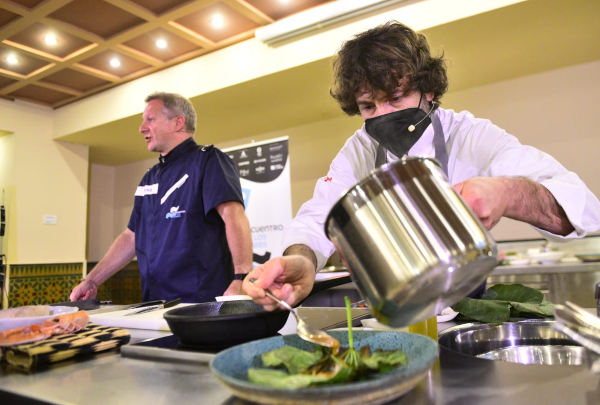
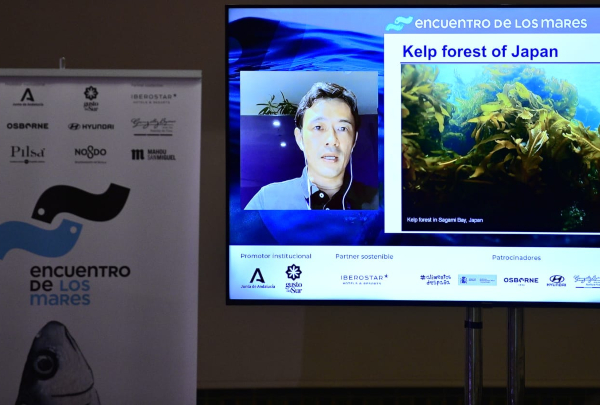
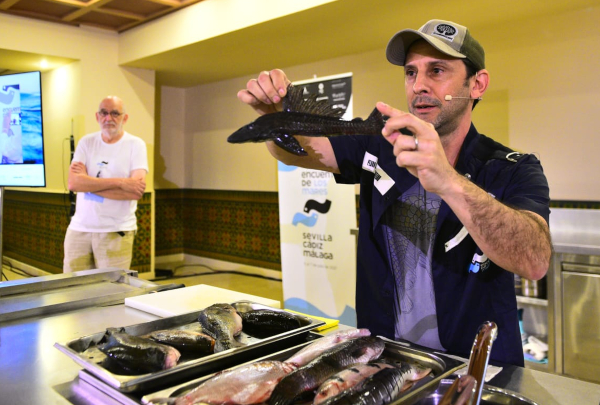
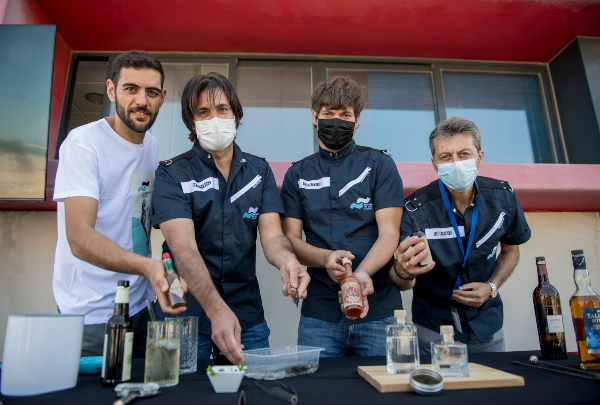
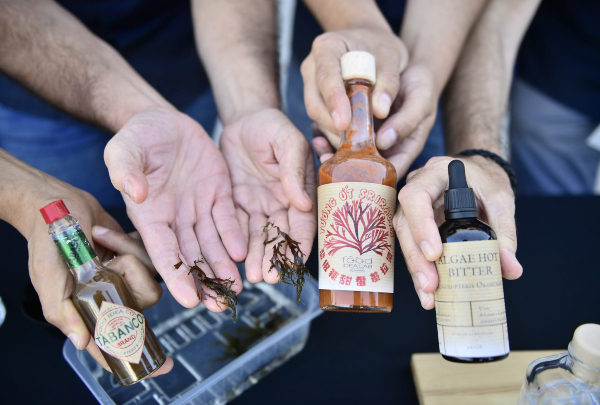
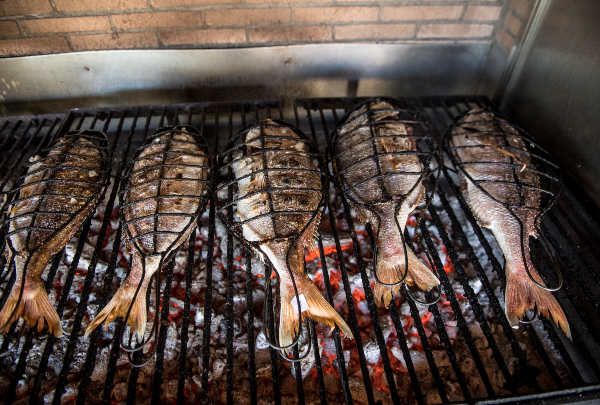
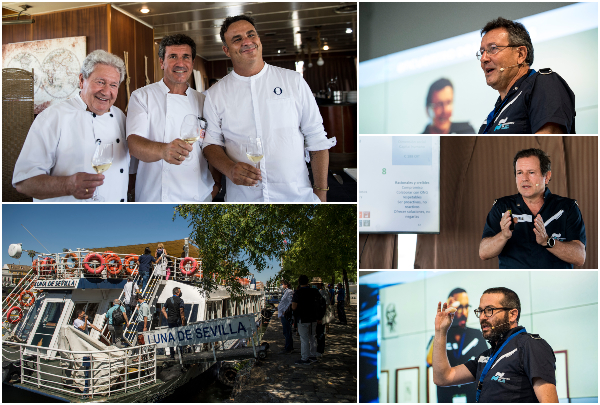
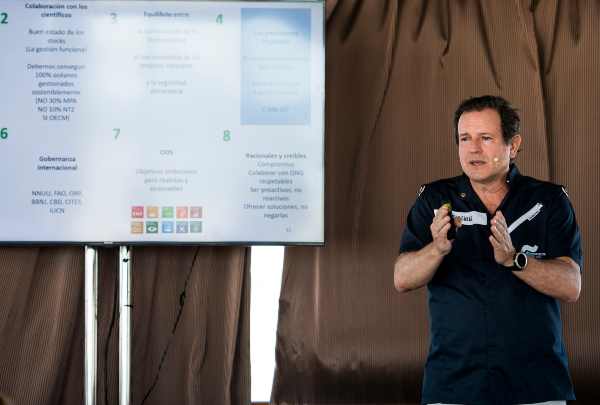
.jpg)



